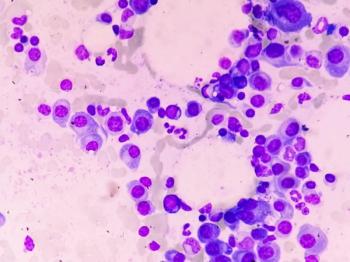
Both economic factors and supply chain fragility play a role.
Alana Hippensteele is lead editor at Pharmacy Times®, Contemporary Clinic, and Pharmacy Times Oncology Edition®. She has a master's in Critical Theory and Creative Research from Pacific Northwest College of Art and a bachelor's degree in English and Art History. She has worked as an English instructor at Temple University and held editorial positions at American Cleaning & Hygiene and Tin House.

Both economic factors and supply chain fragility play a role.

Pharmacists can also play a role in SDOH by replacing drug delivery with something else, such as food or transportation delivery, according to speakers at the ATOPP conference.

The European Union (EU) has successfully created a competitive market for biosimilars, while the US faces challenging market dynamics and tactics by pharmacy benefit managers that hinder the adoption of lower-cost therapies.

Collaboration between community centers and academic medical centers can improve patient access to these complex therapies.

Laura Bray, founder of Angels for Change, explains that addressing the 4 key economic causes to drug shortages can also help lead to effective solutions long-term.

Site-of-care considerations can pose challenges with these therapies.

Oncology pharmacists can help normalize and encourage SOGI data collection.

The quadruplet regimen added bortezomib to the current standard of care, which is a triplet regimen of isatuximab, lenalidomide, and dexamethasone for patients with transplant-ineligible, newly diagnosed multiple myeloma (NDMM TI).

Fostering communication and shared terminology is key.

Additionally, the high cost of the cell therapy raises concerns for broader access.

At ASHP Pharmacy Futures 2024, Mei T. Liu, PharmD, BCPP, highlights the global prevalence and multifaceted nature of depression, its bidirectional relationship with medical conditions, and the need for diverse, evidence-based treatment options.

Lindsey P. Sheehan, PharmD, MPA, MBA, discusses ongoing challenges of diagnosing and treating hepatitis C, emphasizing its increased incidence among younger populations and ongoing low rates of diagnosis.

Speakers at American Society of Health-System Pharmacists (ASHP) Pharmacy Futures 2024 discuss the significant increase in published clinical literature during and after the COVID-19 pandemic, and the evolving role and reliability of AI tools such as ChatGPT in providing accurate medical information.

At ASHP Pharmacy Futures 2024, Casey Olsen, PharmD, explains that AI can affect patient trust in providers, with implications for the importance of learning to balance use of technology with human elements in clinical settings.

At the ASHP Pharmacy Futures 2024 conference, Scott D. Nelson, PharmD, MS, ACHIP, FAMIA, discusses research showed that although AI models can significantly enhance diagnostic accuracy, they can also exacerbate existing disparities.

Kenneth A. Richman, PhD, discusses the disruptive nature of artificial intelligence (AI) in health care, highlighting both its transformative potential and the ethical considerations of governability and sustainability in its implementation.

The impact of artificial intelligence (AI) on health care is growing, from diagnostics to drug discovery.

The study showed that belantamab mafodotin plus pomalidomide and dexamethasone (BPd) significantly improved progression-free survival compared to pomalidomide plus bortezomib and dexamethasone (PVd).

Data presented at ASCO 2024 show fam-trastuzumab deruxtecan-nxki (T-DXd) delayed cancer growth in patients with hormone receptor-positive (HR+), HER2-low or -ultralow disease that progressed following endocrine therapy (ET).

The phase 3 LAURA trial data presented at ASCO 2024 showed osimertinib (Tagrisso; AstraZeneca) reduced risk of disease progression or death in patients with stage 3 EGFR-mutated (EGFRm) non–small cell lung cancer (NSCLC) by 84%.

Results from the trial provide evidence bolstering ASCO’s clinical practice guideline supporting the integration of early palliative care into standard oncology practice.

Matthew A. Gubens, MD, MS, FASCO, highlights the importance of identifying genetic targets in metastatic non–small cell lung cancer (NSCLC), emphasizing the latest updates and strategies.

The addition of ribociclib (Kisqali; Novartis) to endocrine therapy demonstrated a 28% risk reduction in invasive disease-free survival.

A methodical approach can optimize the evaluation of a paper.

The COVID-19 pandemic spring boarded the evolution of pharmacies toward establishing their position as sites of care.

Venture capital investments in women's health are growing, with innovation looking beyond traditional avenues.

With 50 biosimilar products approved by the FDA, questions arise regarding biosimilar lifecycles and sustainability of the industry.

Pharmacists can help patients distinguish between food allergies and intolerances, as well as facilitate access to life-saving medications and preventative care.

At Asembia's AXS24 Summit, a clinician discusses the pathophysiology and classification of pulmonary arterial hypertension.

This year’s event from June 20 to 21, 2024, in Austin, Texas, will offer 4.25 BCOP CE hours.